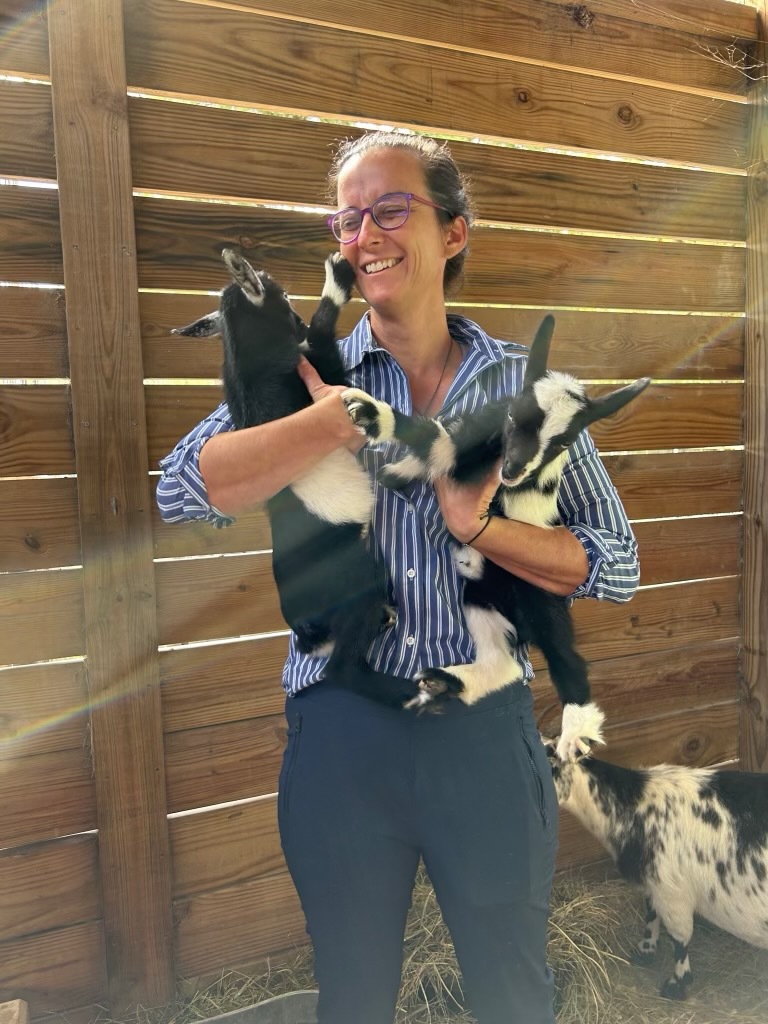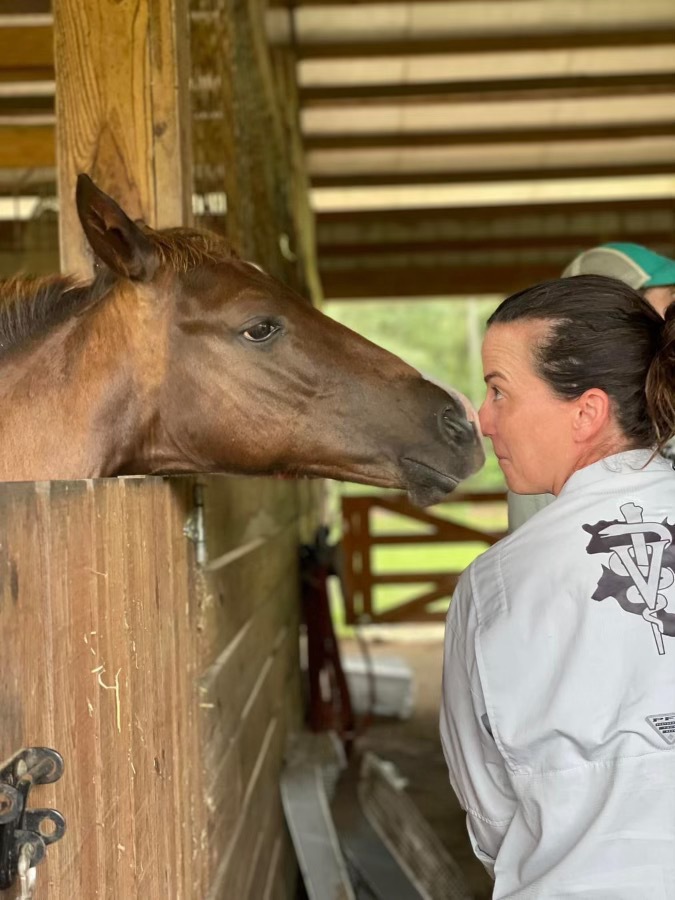
Know Your Neighbor: Jill Barabas
By Victoria Atterberry

Caring for large animals is more than just a job for Jill Barabas. It is a passion. And a way to stay connected to the community.
Owner and founder of Hoof & Horn, Barabas spends her days caring for her long list of clients including horses, cattle, sheep, goats and pigs.
In 2003, Barabas moved to Gainesville to study animal sciences at the University of Florida, and thirteen years later, she opened a veterinarian practice of her own. Hoof & Horn was born in 2016 with the goal to improve animal health and welfare while educating individuals about the importance of preventive medicine.
From new horse owner education to improving the health of a cattle herd, the organization is only a phone call away for those who need help tending to their larger farm animals. For Barabas, the desire to be a veterinarian started at a very young age. She jokes that while growing up, she would tell her mom that she was going to be a cowgirl one day. While cowgirl was not a viable career option, veterinarian was high on the list.
Barabas loves cats, dogs and other small furry companions, but she said working with farm animals provides more opportunities to go out into the community.
“I really like being outside,” she said. “I like working with the rural community and with agriculture and knowing the families that I’m working with. That can happen with small animals, but we have a tendency to travel longer distances and spend more time with people working on a farm.”
Barabas and her team are always ready to help an animal in need, but she also aims to provide as much education as possible to animal owners.
“We try to make sure that people understand more about agriculture because that’s usually when, I feel like, problems arise,” she said.
In 2014, Barabas worked for the City College Veterinary Technician Program as program director and staff veterinarian. There, she educated students about animal care, a practice she continues to do today at Hoof & Horn. Interested students wanting to step into the veterinarian field can work alongside Barabas and her team, learning what it means to be fully immersed in this line of work.
And while Barabas said the job is very fulfilling, large animal care is facing a shortage of workers.
“We’re adding an emergency person to try to model the small animal sector, so I’m hoping that…we can manage to keep this profession alive,” she said.
But even with the work being more demanding than ever, Barabas continues to show up every day for the people of Greater Gainesville, from returning a lost calf to its owner to providing emergency care.
“It’s not just about the calls that you’re getting,” she said. “It’s recognizing what’s happening around you so that you can make sure that people are getting what they need to make a living, and that the animals are staying healthy and just being a good part of the agricultural community.”




